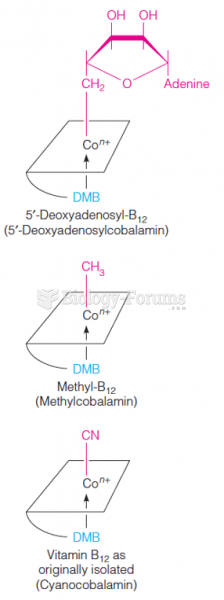|
|
|
Human stomach acid is strong enough to dissolve small pieces of metal such as razor blades or staples.
Most childhood vaccines are 90–99% effective in preventing disease. Side effects are rarely serious.
The most common childhood diseases include croup, chickenpox, ear infections, flu, pneumonia, ringworm, respiratory syncytial virus, scabies, head lice, and asthma.
An identified risk factor for osteoporosis is the intake of excessive amounts of vitamin A. Dietary intake of approximately double the recommended daily amount of vitamin A, by women, has been shown to reduce bone mineral density and increase the chances for hip fractures compared with women who consumed the recommended daily amount (or less) of vitamin A.
The human body produces and destroys 15 million blood cells every second.







